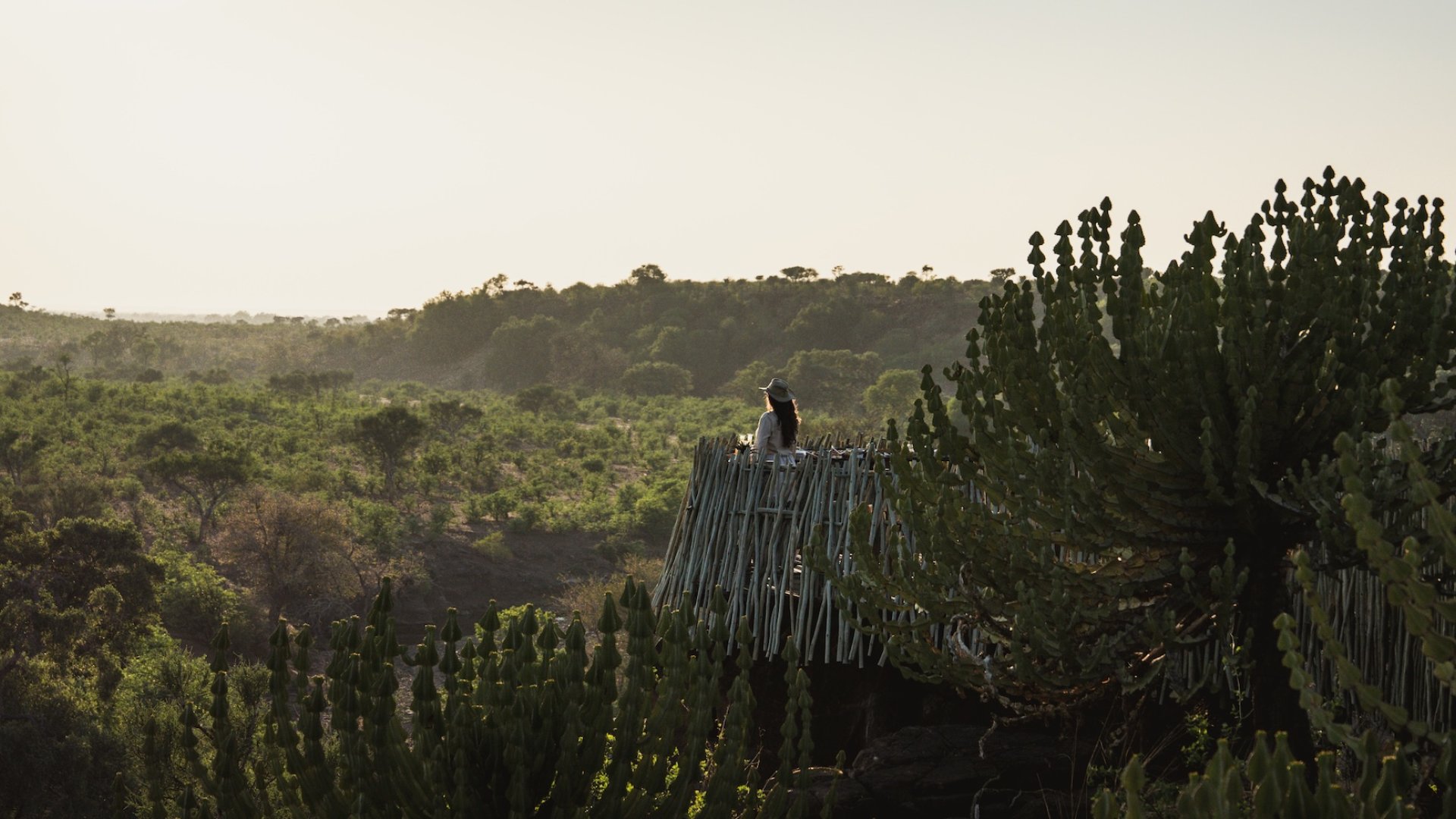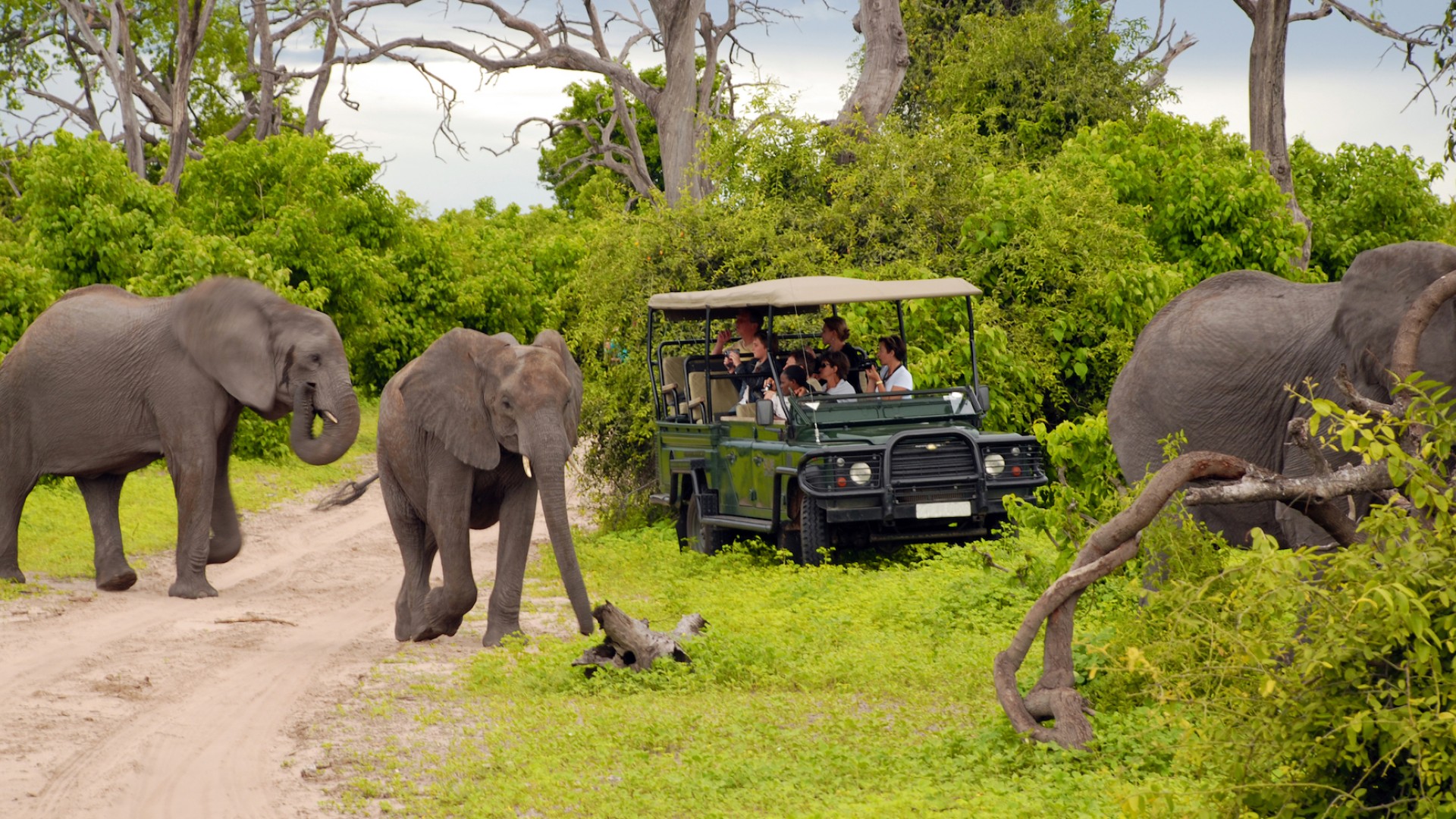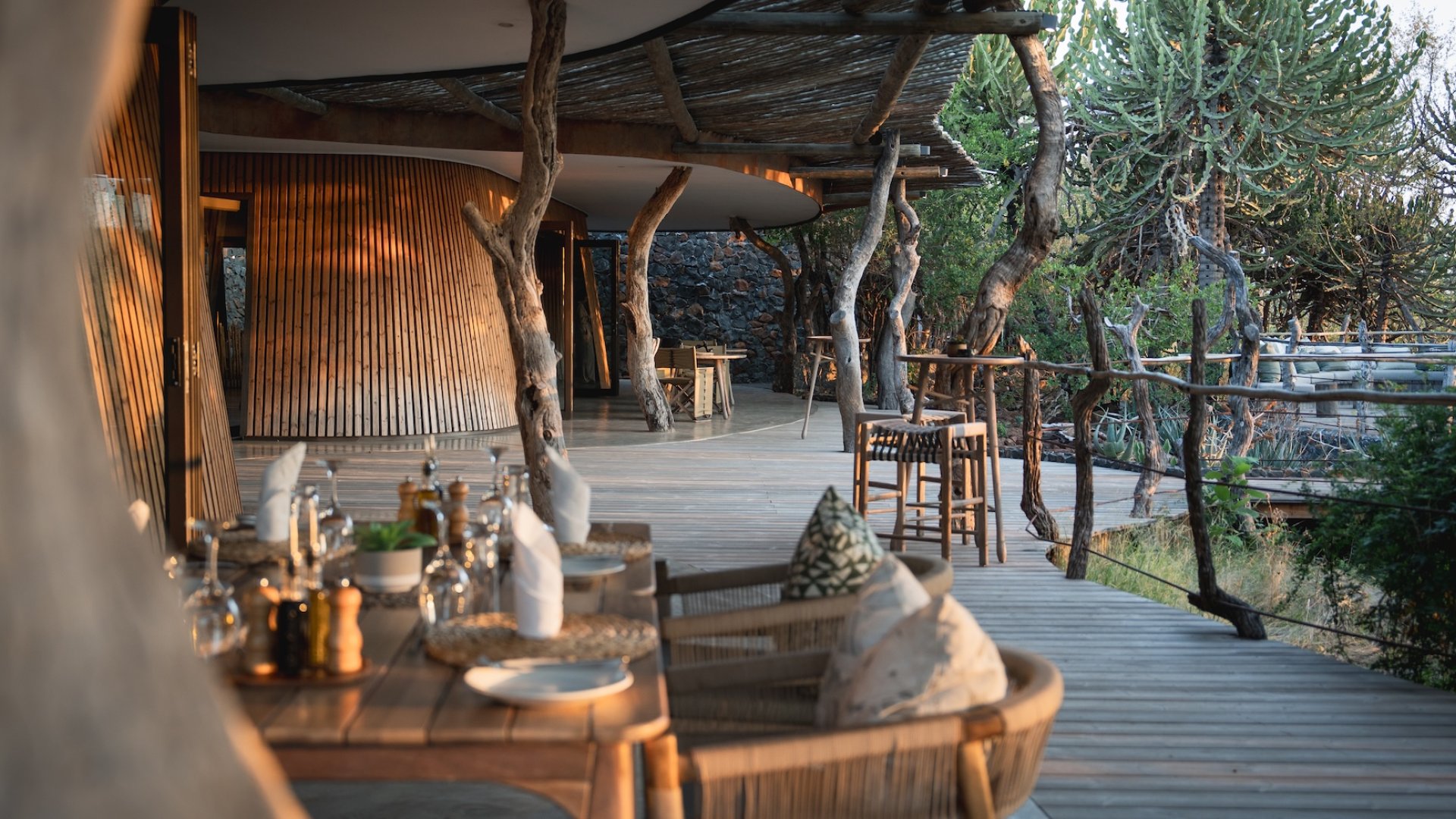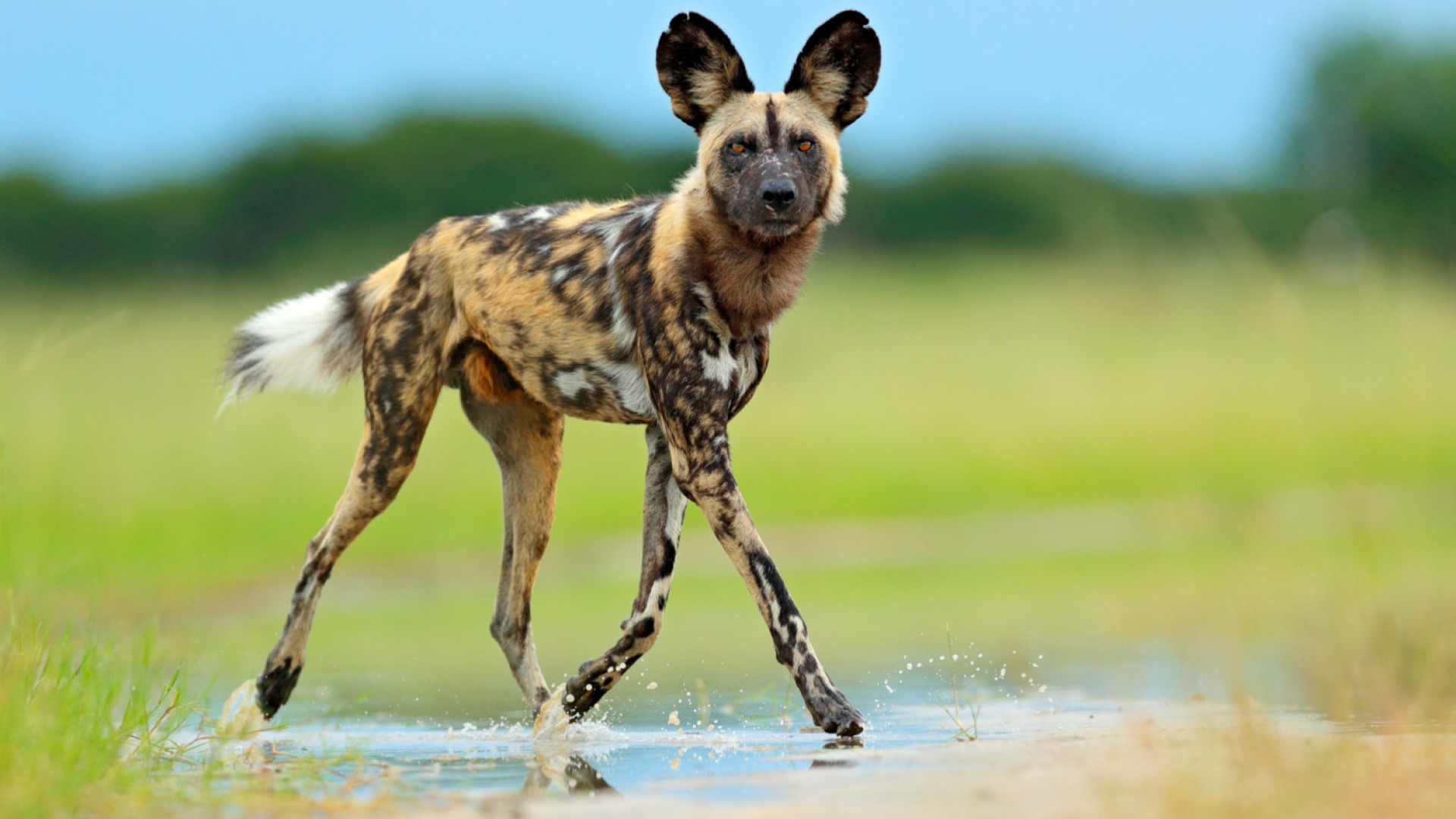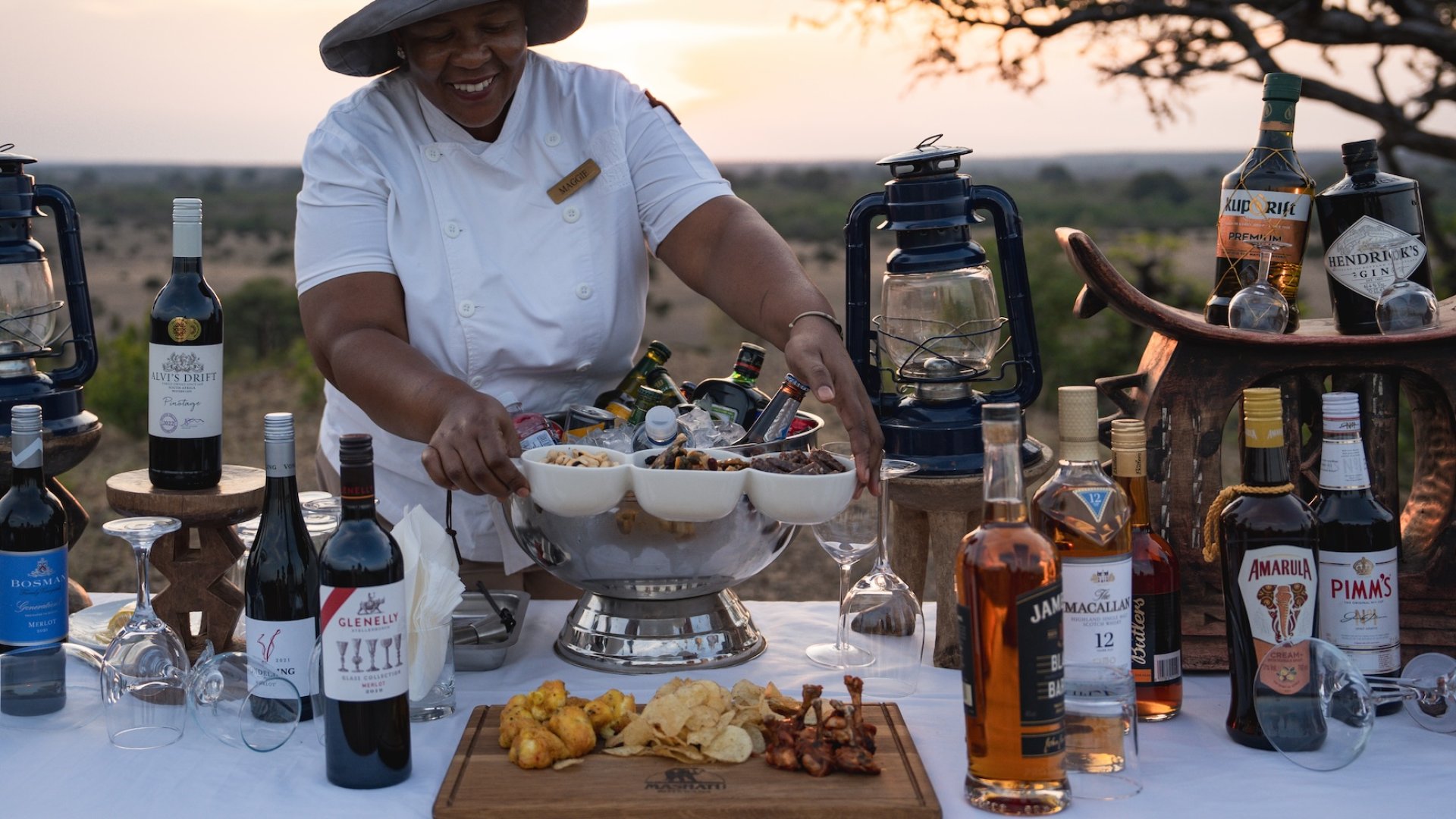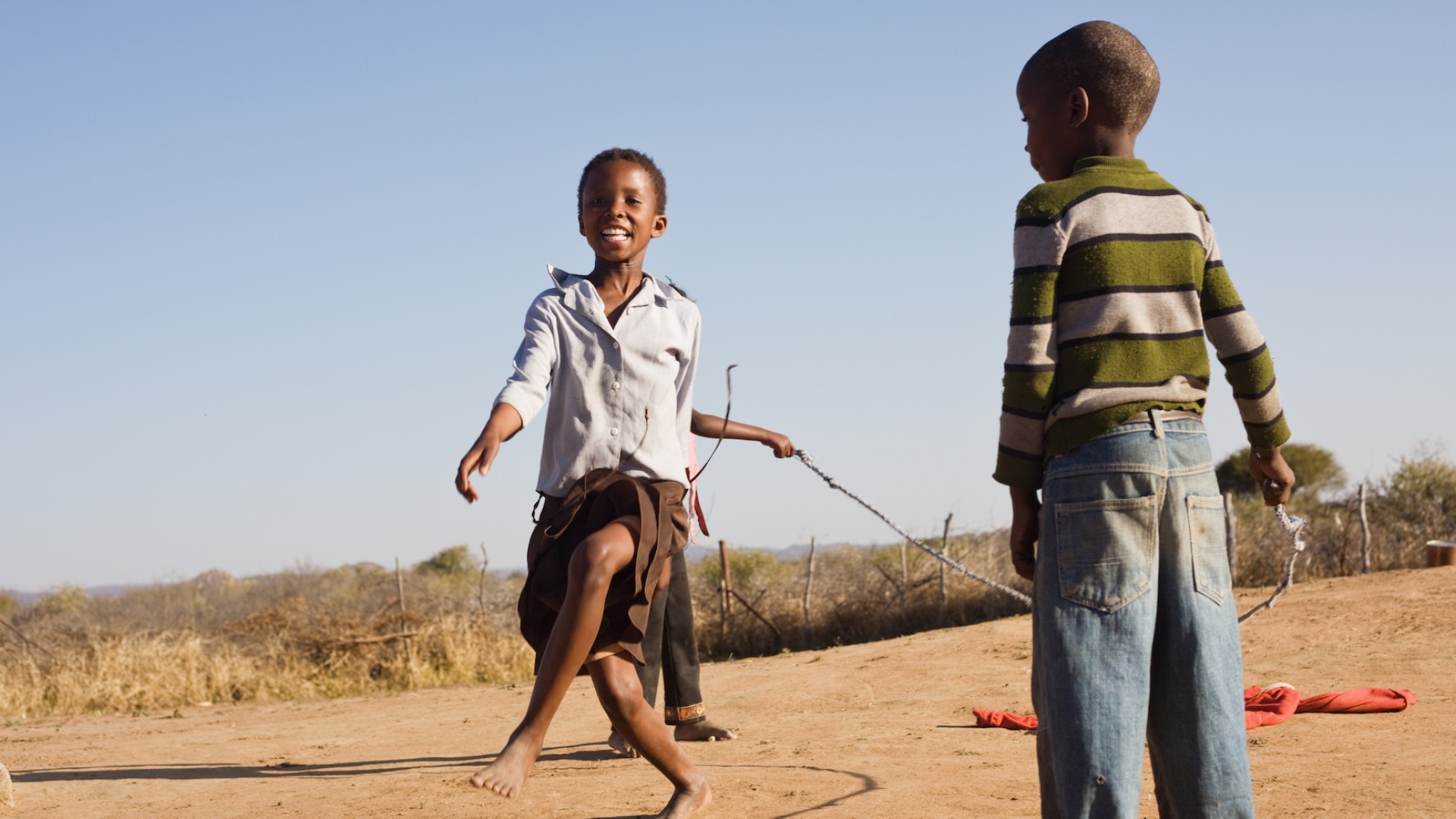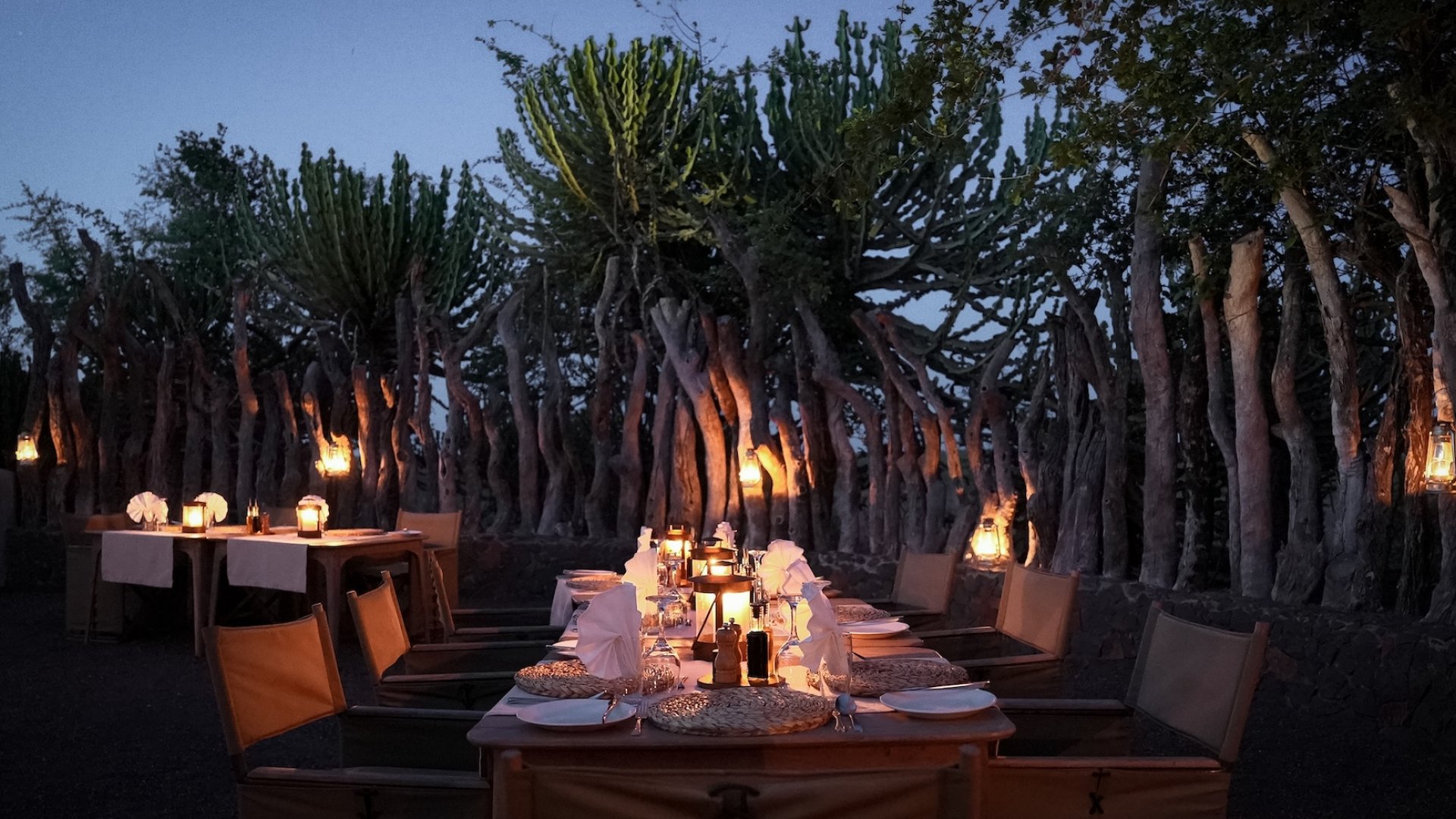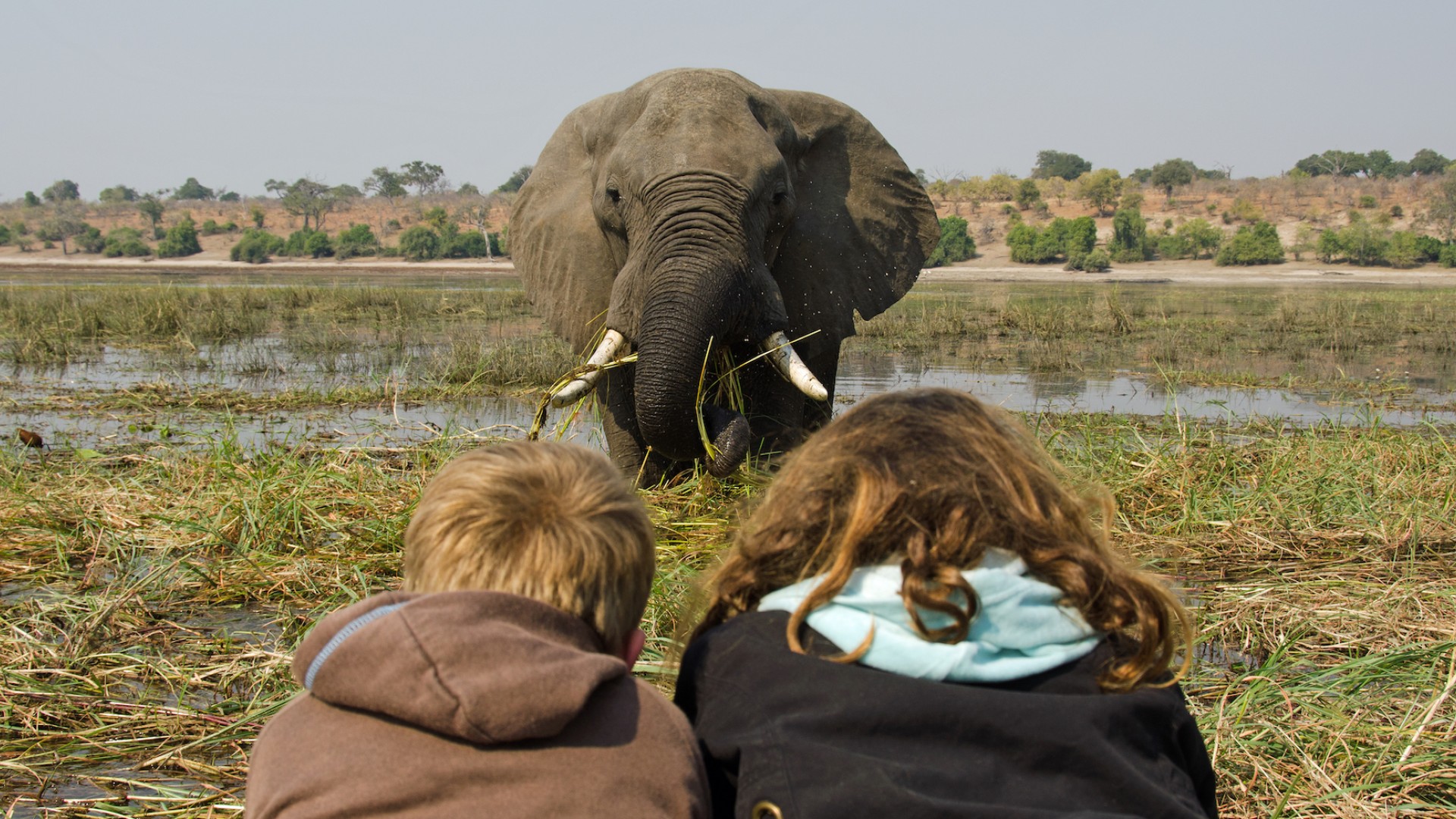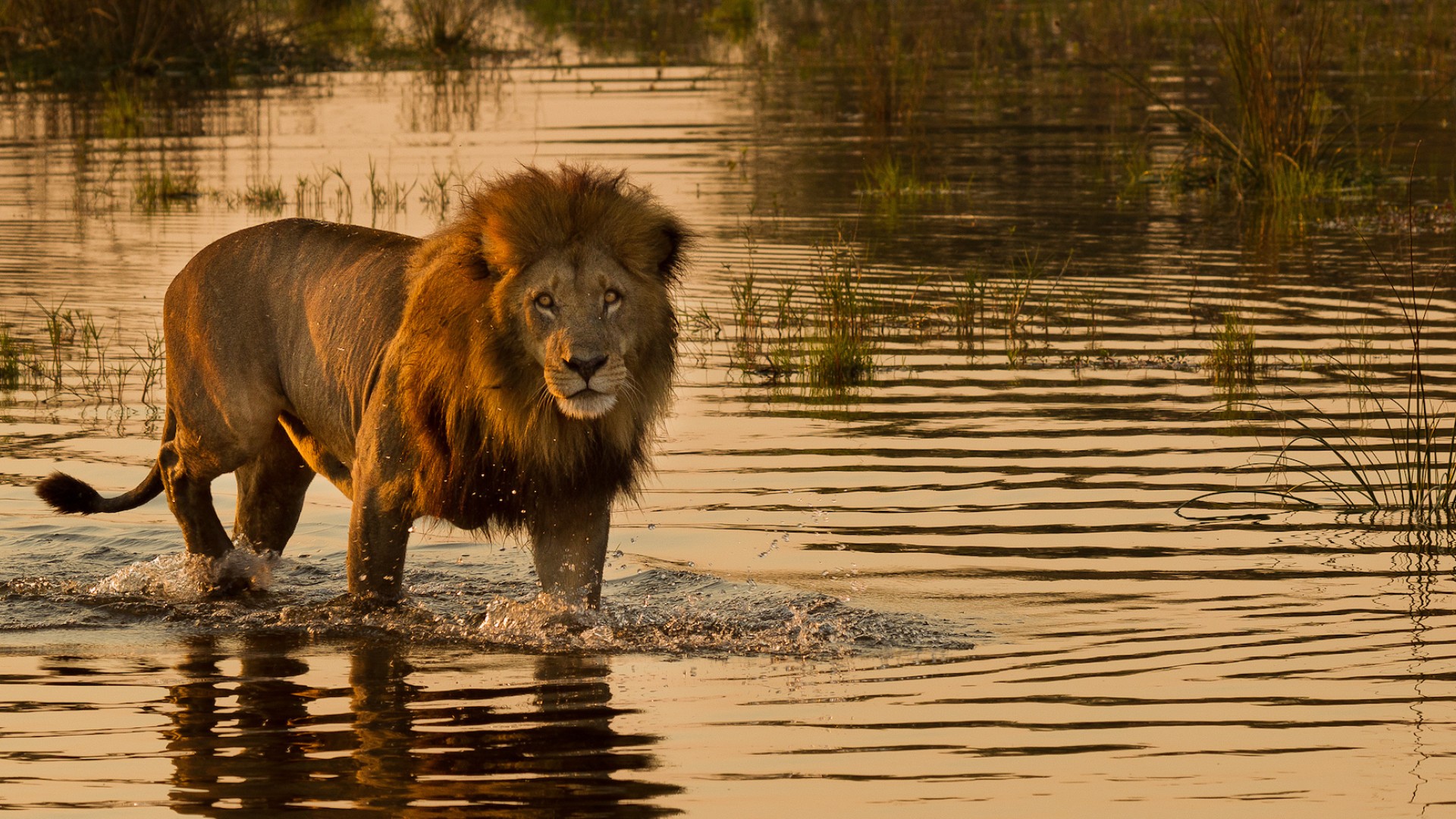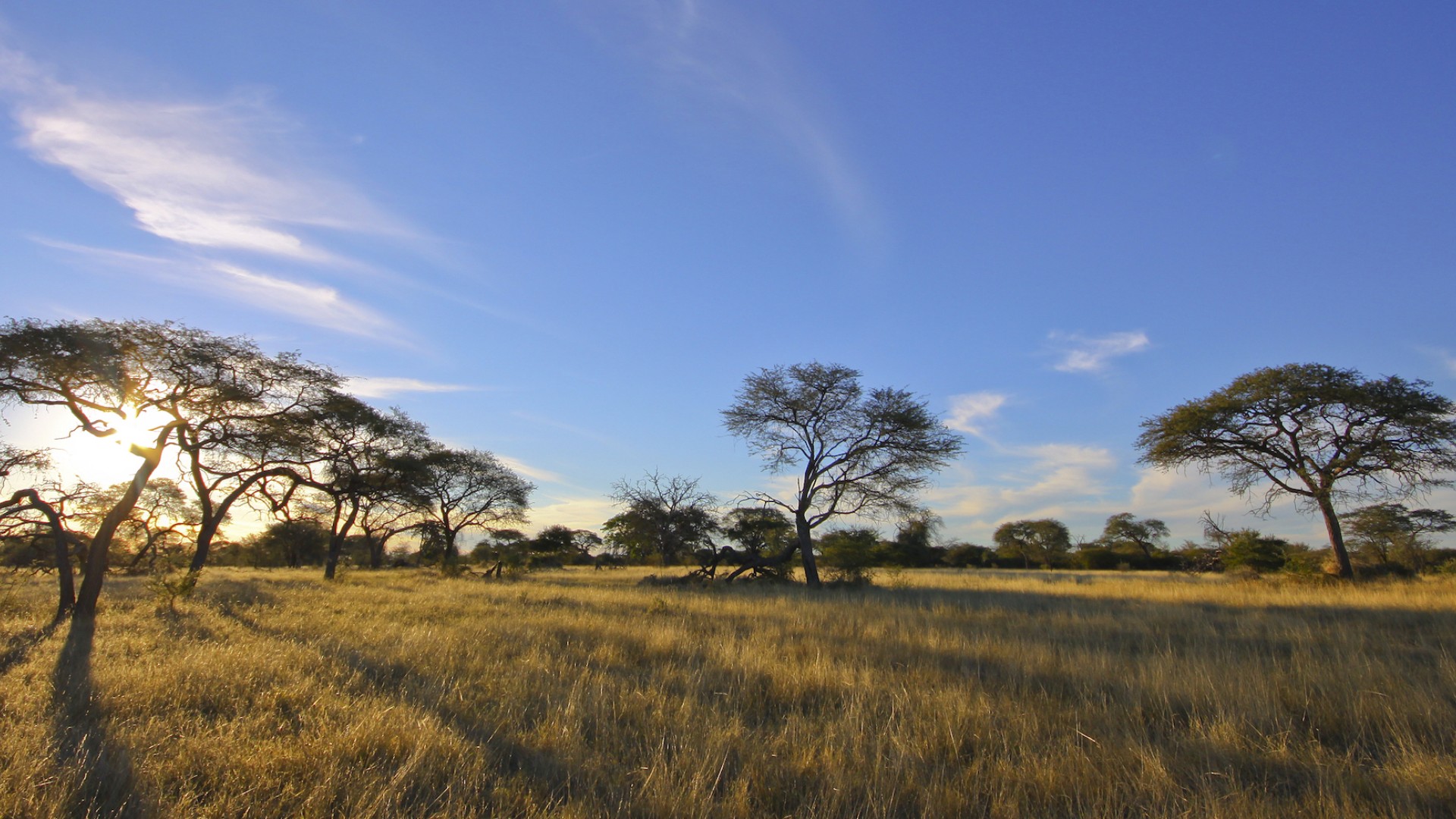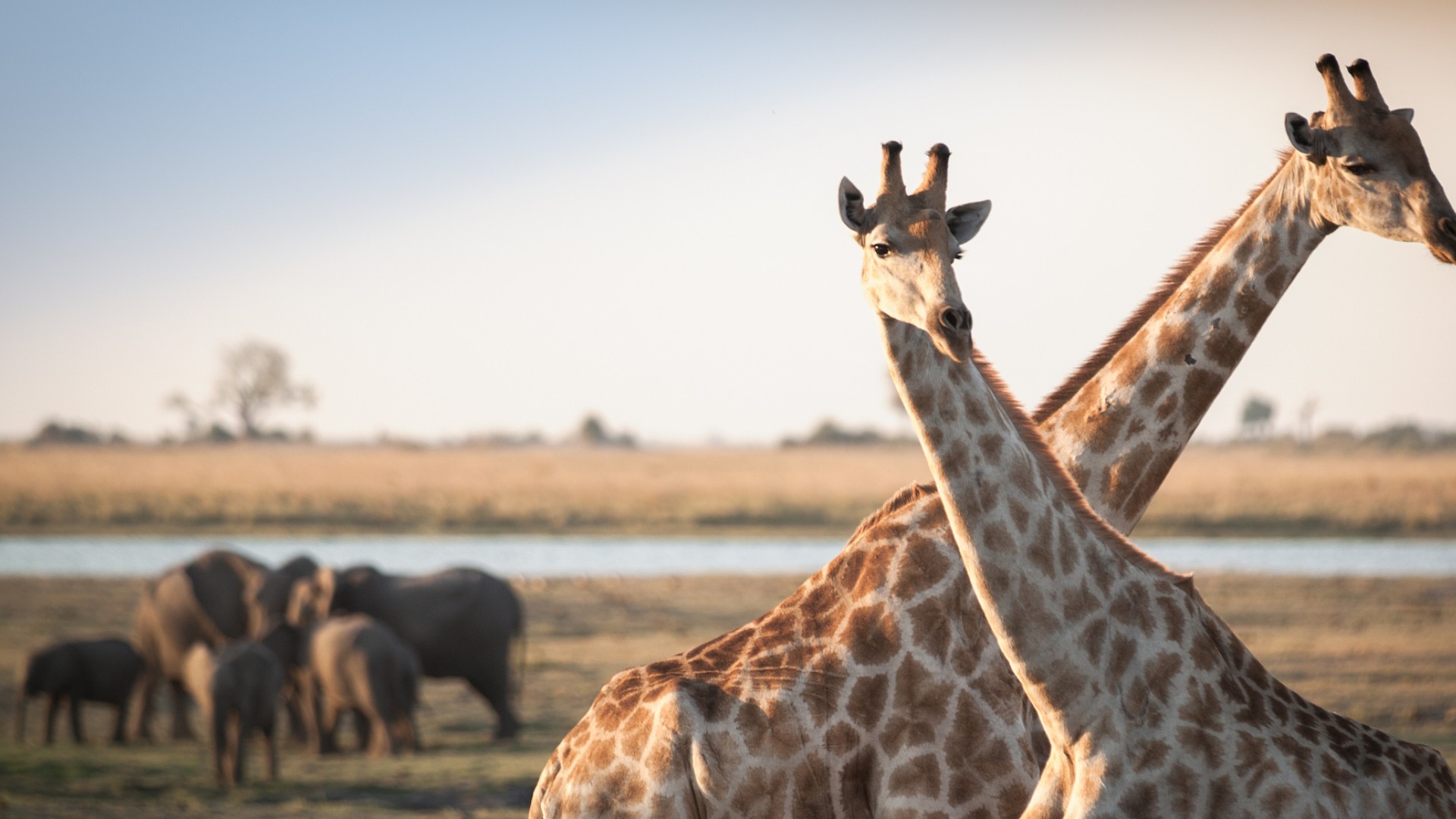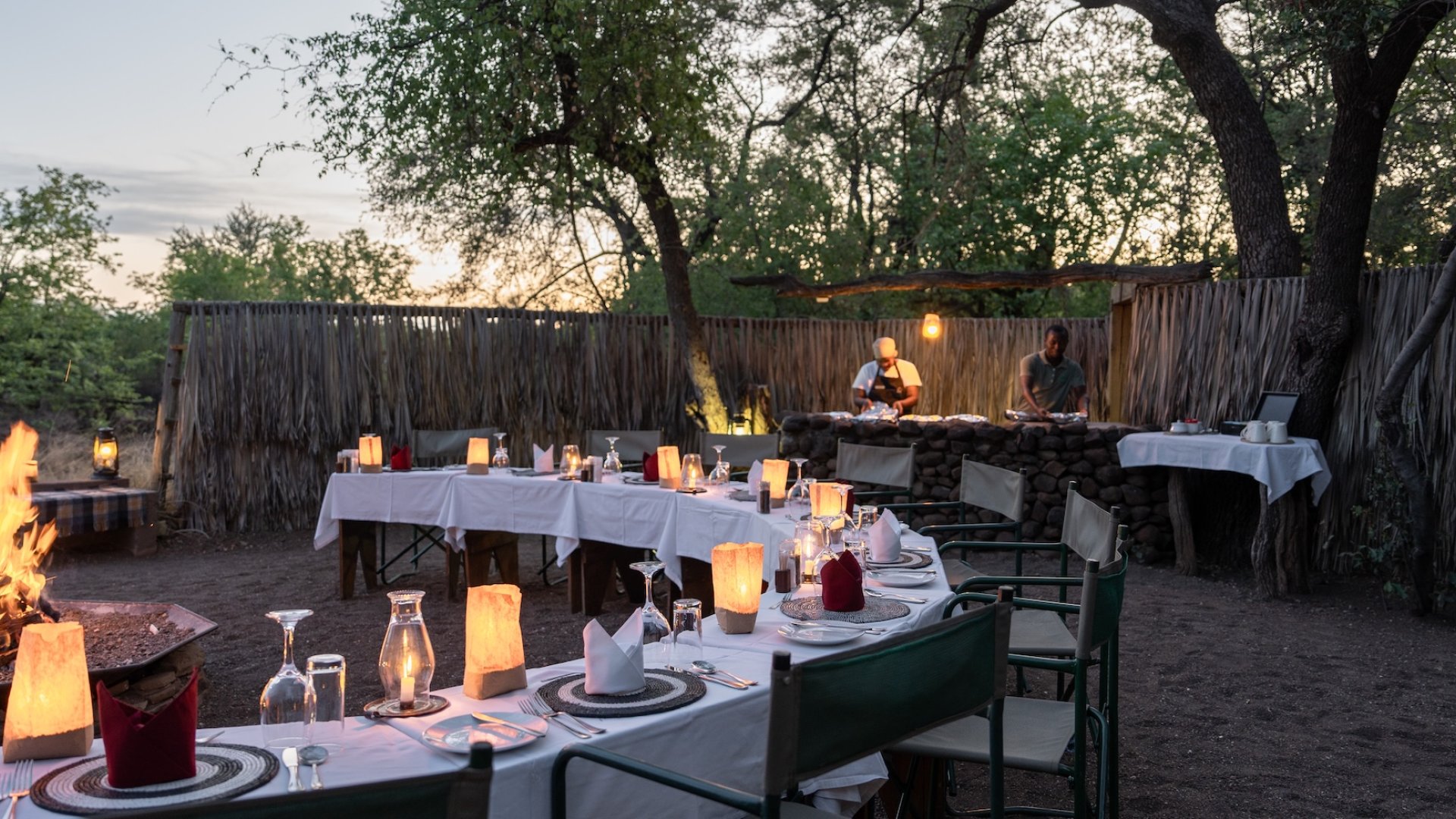Overview
Landlocked in Southern Africa, Botswana is a spellbinding country that’s home to some of the continent’s best wildlife and birdwatching reserves. It encompasses the remote sand dunes and mopane forests of the Kalahari Desert, as well as the seasonally flooded wetlands of the Okavango Delta. In Chobe National Park, you’ll encounter one of the world’s largest populations of African elephants, alongside hippos, giraffes, lions, and zebras.
Botswana is also one of Africa’s most politically stable countries and has established a reputation as a safe and crowd-free safari destination. It offers incredible experiences like tracking black-maned Kalahari lions in Kgalagadi Transfrontier Park and learning about the hunter-gatherer lifestyle of the San people, one of the oldest surviving cultures in the region.
Custom Tours in Botswana
With Adventures Unbound, we’ll get you up close to Botswana’s magnificent wildlife during immersive hiking and biking safaris, led by local guides who have a wealth of knowledge about the country’s cultural heritage. At the end of each day, you’ll enjoy sundowners while watching the sunset over ancient landscapes before settling in at your choice of camp or lodge.
Working closely with local partners and affiliates in Botswana, let us curate a private tour that reflects your interests, whether it’s scaling mountains, spotting wildlife or discovering new cultures. All of our Botswana adventures are customized to suit your interests and budget, with some of Africa’s most incredible safari accommodations at your disposal.
To get started, please fill out the form below, or you can learn more by reading some of our most frequently asked questions.
Image & Video Gallery
FAQ's
How do I get to Botswana?
Botswana has three main aviation gateways - Maun International Airport (the gateway to the Okavango Delta), Sir Seretse Khama International Airport (near the capital Gaborone), and Kasane International Airport (the gateway to Chobe National Park). The easiest way to get to any of these airports from the United States or Europe is via a connecting flight from Cape Town or Johannesburg in South Africa.
Once you arrive at one of Botswana’s international airports, private air charters, and safari vehicles are the main means of getting to lodges and camps, with some accommodation only accessible by boat.
Do I need a visa to visit Botswana?
Passport holders of all nationalities can currently enter Botswana visa-free for stays of up to 90 days. That being said, you do need a passport that is valid for at least six months beyond your date of departure from Botswana and with at least two free pages for stamps.
What is the official language of Botswana?
English is the official language of business in Botswana and almost everyone you will encounter will speak it fluently. That being said, the most commonly spoken language in the country is Setswana, a Bantu language that is also spoken in parts of South Africa.
What currency is used in Botswana? Can I use my debit or credit card?
The Botswana Pula is the official currency used in Botswana, with 1 USD equalling around 13 Pula at the time of writing. USD, Euros, UK pounds, and South African rands are readily accepted at lodges, camps, and tourist restaurants, although it’s best to have a few Pula on hand. You can easily withdraw Pula at ATMs, which are found throughout Botswana, and major international credit and debit cards are accepted at most tourist businesses.
Can I drink the tap water in Botswana?
The tap water in Botswana has been deemed safe to drink and you’ll find bottled mineral water at most shops and supermarkets, as well as at camps and lodges.
Do I need any vaccinations to visit Botswana?
There are no compulsory vaccinations required to enter Botswana, although it’s recommended that you are protected against Hepatitis A, Polio, and Tetanus. You may also want to discuss with your health provider regarding vaccinations against Hepatitis B, Rabies, and Typhoid. Proof of a yellow fever vaccination is required if you are coming from or have transited through some parts of Africa and South America.
Is there malaria in Botswana?
There is a risk of malaria in certain parts of Botswana throughout the year, with the highest incidences from November to June. If you’re visiting the north of the country, including Chobe National Park and the Okavango Delta, it’s recommended that you take prescription medicine to prevent malaria.
What type of electrical outlets do they use in Botswana?
Botswana uses Type D (three round pins in a triangular pattern) and Type G (three rectangular pins in a triangular pattern) plugs and operates on a 230V supply voltage and 50Hz.
How can I prepare for a safari tour? What should I pack?
Casual, comfortable garments that are quick drying are a staple of safari travel, with neutral colors such as beige, khaki, or green helping you to blend in with the natural environment. Always pack a couple of long sleeves shirts and long pants that will guard against mosquito bites at night.
Don’t forget to pack a sweater for the chilly early mornings and evenings, plus a lightweight waterproof jacket. Walking shoes with good grip and flip flops/sandals for getting around the camp are the only footwear you’ll need!
In terms of accessories, pack a broad-rimmed hat, sunglasses, and sunscreen, as well as insect repellant and any prescription medication to might need. A pair of binoculars may also come in useful and most guests opt to bring a high-quality camera to document their experiences.
Most importantly, don’t forget your passport and any vaccination records you need, as well as documentation of a comprehensive travel insurance policy.
Can I book a custom safari for my family? What is the minimum age requirement?
All of our private tours are custom-designed, including family safaris. Depending on your interests and preferred destinations, we can tailor an itinerary to suit. The minimum age requirement for children differs depending on the places you want to visit and the activities you want to participate in.
Can you accommodate dietary restrictions?
On all of our custom safaris and private tours, we do our best to accommodate dietary restrictions, provided we have prior knowledge. That being said, in some remote areas, particular ingredients may be difficult to find and suitable alternatives will be sought.
What are the accommodations like?
Our accommodation options range from basic camping to glamping at upmarket safari camps, as well as family-focused resorts and high-end lodges. In some destinations, we can also create itineraries staying at private villas, complete with in-house staff. Glamping tents are among the most popular of our accommodation options as they immerse you in the wilderness environment while keeping bugs and wildlife out.


